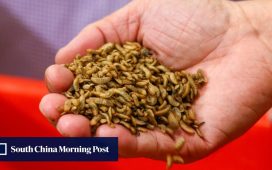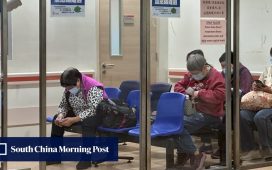Lee said under the new curriculum, students would spend eight weeks studying cancer, as the disease might become more common among the ageing population.
“We believe that after 20 years, one-third of the population will be elderly people older than 65 years old. How will we prepare our society to better take care of this [group] is very crucial,” she said in a media briefing on Thursday.

“As our lives become longer, there is a higher incidence of cancer among our population,” Lee said. “Advancements can also be observed … Many cancers can be treated or controlled by medications.”
Lee said the change would enable a more comprehensive learning experience because the topic of cancer was scattered across different specialities previously.
Students would learn about cancer treatments from a patient perspective, such as when the symptoms were first noticed and referrals to various specialists, she added.
“They will understand the collaboration between different specialities, which is the major trend of healthcare in the future,” she said.
“We will show our students their roles in the medical system and how to avoid viewing things only from their own perspectives.”
Lee said the school will also incorporate augmented reality, virtual reality and generative artificial intelligence into the curriculum.
Students will also be taught the ways to conduct effective virtual medical consultations, and how to ensure cybersecurity and protect patients’ privacy, she added.
The current medicine curriculum at HKU covers six years, including the first two years of preclinical studies focusing on biomedical sciences, public health, and pharmacology, and an enrichment programme in the third year. The structure of the first three years will remain unchanged.
Currently, in year 4, students undergo a general clerkship where they study medicine, surgery, and other specialities separately in three periods consisting of nine weeks. The same process happens in year 5 with the periods shortened to eight weeks each.
Under the revamp, the 48 weeks between year 4 and 5 will be divided into three parts consisting of 16 weeks where medicine and surgery will be taught in the first two.
Students will embark on a curriculum in the order of obstetrics and gynaecology, paediatrics, family medicine, geriatrics, psychiatry, and emergency medicine according to the life cycle, in a 8-week period. The remaining eight weeks will be about cancer.
The one-year assistant internship will occur between the latter half of year 5 and the first term of year 6.
It will require students to intern beyond the medicine department in areas such as surgery, obstetrics and gynaecology, paediatrics, orthopaedics and traumatology, emergency medicine, and psychiatry.
Lee said the reform will also strengthen the emphasis on primary healthcare and community services, precision medicine, medical humanities, ethics and law, global health, and the collaboration between Chinese and Western medicine.








